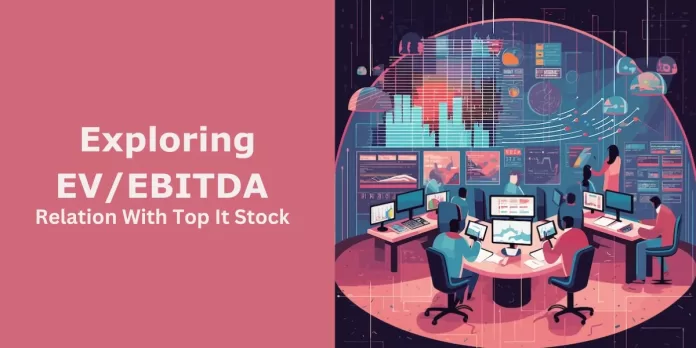Exploring financial ratios is like diving into a vast sea with various types of stones, plants, sediments, and hidden treasures waiting to be discovered. When it comes to valuation ratios, there are numerous combinations that provide valuable insights into decision-making. Today, we embark on a journey to ride the wave of understanding the EV/EBITDA ratio.
What is EV/EBITDA?
Enterprise value to EBITDA (EV/EBITDA) is a financial ratio that is used to measure the valuation of a company. It is calculated by dividing a company’s enterprise value by its earnings before interest, taxes, depreciation, and amortization (EBITDA).
EV/EBITDA is a popular valuation ratio because it takes into account a company’s debt and cash levels in addition to its stock price. This makes it a more comprehensive measure of a company’s value than simply looking at its market capitalization.
How is EV/EBITDA calculated?
EV/EBITDA = Enterprise Value / EBITDA
Enterprise value is calculated as follows:
Enterprise Value = Market Capitalisation + Debt – Cash
How to interpret EV/EBITDA
A higher EV/EBITDA ratio indicates that a company is more expensive relative to its earnings. A lower EV/EBITDA ratio indicates that a company is less expensive relative to its earnings.
There is no universal answer to the question of what a “good” EV/EBITDA ratio is. The ratio will vary depending on the industry and the company’s growth prospects.
However, in general, a lower EV/EBITDA ratio is considered to be more attractive, as it indicates that a company is a less expensive relative to its earnings.
How to use EV/EBITDA
EV/EBITDA can be used to compare the valuation of different companies within the same industry. It can also be used to track the valuation of a company over time.
For example, if an investor is interested in investing in the technology sector, they could compare the EV/EBITDA ratios of different technology companies to see which ones are trading at a more attractive valuation.
Limitations of EV/EBITDA
One limitation is that EV/EBITDA does not take into account the quality of a company’s earnings. For example, a company with high EBITDA but low margins may be less valuable than a company with lower EBITDA but higher margins.
Another limitation is that EV/EBITDA can be manipulated by companies. For example, a company can increase its EBITDA by taking on more debt. This is why it is important to consider other factors, such as a company’s debt levels and cash flow, when using EV/EBITDA to value a company.
Within the IT sector, let’s analyze these stocks:
| S.NO. | Company Name | Market cap. (Rs crore) | P/E | EV/EBITDA |
| 1 | Tata Consultancy Services Ltd | 1338956.71 | 30.57 | 20.58 |
| 2 | Infosys Ltd | 614671.84 | 24.94 | 15.51 |
| 3 | HCL Technologies Ltd | 342193.07 | 22.62 | 13.67 |
| 4 | Wipro Ltd | 223977.37 | 19.24 | 11.83 |
According to the table, the company with the highest P/E ratio is Tata Consultancy Services (TCS), followed by Infosys and HCL Technologies. Wipro has the lowest P/E ratio.
Read: Low P/E Stocks A Great Bargain Or A Trap?
The company with the highest EV/EBITDA ratio is TCS, followed by Infosys and HCL Technologies. Wipro has the lowest EV/EBITDA ratio.
Analysis of the Table
Based on the table, TCS is the most expensive stock among the four companies, with the highest P/E and EV/EBITDA ratios. This is likely due to TCS’s strong financial performance and its leadership position in the Indian IT industry.
Infosys and HCL Technologies are also relatively expensive stocks, with P/E and EV/EBITDA ratios above the average for the Indian IT industry.
Also Read: Stock Split And Bonus Analysis In The Indian It Sector
Wipro is the least expensive stock among the four companies, with the lowest P/E and EV/EBITDA ratios. This may be due to Wipro’s recent financial performance, which has been weaker than that of its peers.
Disclaimer: This blog has been written exclusively for educational purposes. The securities mentioned are only examples and not recommendations. It is based on several secondary sources on the internet and is subject to changes. Please consult an expert before making related decisions.


